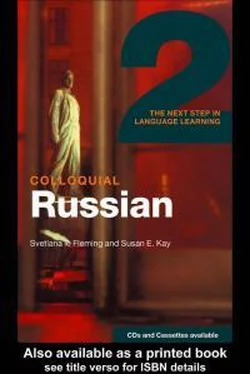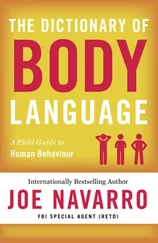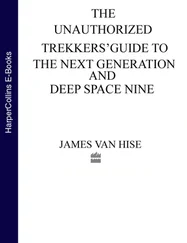russian> you will find extra exercises as well as links to sites that build on the material in the units.
1111
2
1ROSSIQ I RUSSKIJ
3
4
QZYK
5
6
7
8111
9
10
1
In this unit you will
2
3
◗ learn some facts about the history of Russia
4
◗ revise the basic structures of Russian grammar including cases 5
and aspects
6
7
8
9
20111
1
When Mikhail Gorbachev became General Secretary of the
2
Communist Party of the Soviet Union in March 1985 he recognised 3
the need for fundamental economic reform. His policy of pere-4
strojka (economic restructuring) had very little impact, but his other 5
famous introduction, glasnost; , an element of freedom of speech 6
and political freedom, ultimately led to the collapse of the USSR.
7
Reformist politicians were successful in the elections of 1989, revo-8
lutions took place in the Soviet Union’s East European satellites 9
during 1989–90, and the republics of the Soviet Union also started 30
to demand independence. The final blow was the unsuccessful coup 1
by conservative elements in August 1991, which eroded Gorbachev’s 2
position and brought Boris Yeltsin, President of Russia, to the fore.
3
The Soviet Union was finally dissolved in December 1991. The 4
collapse of the Soviet Union was also the birth of a new Russia. Since 5
then Russia’s history has not been smooth, characterised by such 6
notable events as Yeltsin’s violent clash with parliament in October 7
1993, ending in the siege of the Russian ‘White House’, and the finan-8
cial collapse of September 1998. Despite its problems, Russia is a 9
country with a rich culture, huge resources, both human and physical, 40
and its capital Moscow is now a vibrant and exciting city.
1
421111
2
|
Russia and the Russian language
Language revision ♦
Rules of spelling
These rules apply throughout Russian and impact on all the other language points described below.
1 After g, k, x, ', h, w, ] replace y by i.
2 After ', h, w, ], c replace unstressed o by e.
3 After g, k, x, ', h, w, ], c replace q by a.
4 After g, k, x, ', h, w, ], c replace [ by u.
Cases
Understanding of the case system is fundamental to a grasp of Russian. Cases hardly feature in English: there is only some differentiation in the use of pronouns. Contrast ‘I like her’ with ‘She likes me’. The forms ‘I’ and ‘she’ are used when they are the subject of the verb, or nominative case, and ‘her’ and ‘me’ when they are the object, or accusative case. In Russian, not just pronouns, but nouns and adjectives proclaim their role in the sentence by changing their ending, and the number of cases extends beyond nominative and accusative to six in total.
Comprehensive tables of the endings of nouns, adjectives and pronouns are at the back of the book.
The nominative case
Uses of the nominative case
1 The nominative is the case of the subject of the verb: Moskva´ procvetaét.
Moscow flourishes.
2 It is also used as the complement of (i.e. following) the non-existent present tense of the verb ‘to be’ and after \´to ‘it is’ and vot ‘here is’:
Moskva´ – stolića.
Moscow is the capital.
Vot Moskva´. |to stolića.
Here is Moscow. It is the capital.
Rossiq i Russkij Qzyk
|
3
1111
The nominative may also be found after the past tense of byt; , where 2
the permanence of a state is being emphasized:
3
Pu´wkin byl veli´kij po\´t.
4
Pushkin was a great poet.
5
6
Endings in the nominative case
7
8111
Singular nouns
9
10
1
Masculine
Feminine
Neuter
2
3
cns.
prezideńt
-a
gaze´ta
-o
vino´
4
president
newspaper
wine
5
-j
tramva´j
-q
revol[
ćiq
-e
zdańie
6
tram
revolution
building
7
-;
kreml;
-;
vozmo´'nost;
-mq
vre´mq
8
kremlin
opportunity
time
9
20111
1
Note:
2
There are three genders of nouns in Russian and, in most instances, 3
the gender is indicated by the letter a noun ends with in the nomi-4
native singular. When a noun ending in -a or -q clearly refers to 5
someone of male gender, the word is masculine: mu'hińa ‘man’; 6
dq´dq ‘uncle’. In practice, this means that it changes its endings like 7
a feminine noun but adjectives and verbs agreeing with it have mascu-8
line endings.
9
30
Plural nouns
1
2
3
Masculine
Feminine
Neuter
4
5
Singular
Plural
Singular
Plural
Singular Plural
6
prezideńt
prezideńty
gaze´ta
gaze´ty
vino´
vińa
7
tramva´j
tramvaí
revol[
ćiq
revol[
ćii
zdańie
zdańiq
8
9
kreml;
Читать дальше












